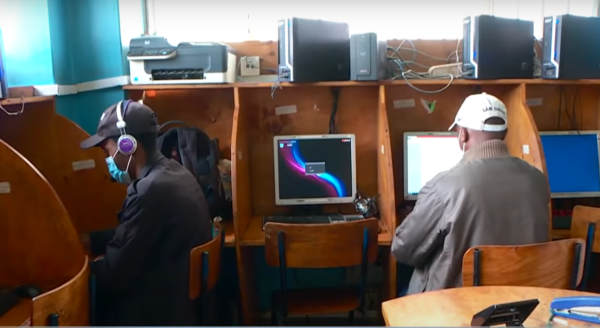In a problem that shows no sign of abating as education increasingly is being conducted remotely, a recent CBS investigation has uncovered that American college students are outsourcing schoolwork to Kenyans overseas who are paid thousands of dollars a month to do anything from write essays to complete entire college degrees for Americans studying at universities.
The essay-for-hire scheme has been going on for years. Known as “contract cheating,” it has only expanded as online education becomes more commonplace.
Contract cheating has been defined as a form of academic dishonesty in which students employ a third-party to complete their assignments. The practice is illegal in 17 states but has not been outlawed on the federal level.
Although 50,000 people graduate from public and private universities in Kenya each year, many remain unemployed due to underdeveloped economic infrastructure and the country’s relative sidelining from global industry sectors like technology, manufacturing, and finance. As a result, Kenyan graduates often turn to the contract cheating industry to cover their expenses.
Americans will pay between $20 and $50 per page to have their essays completed by Kenyan writers who sometimes subcontract the work out to other writers, paying them as little as $5 a page. The writers complete schoolwork in courses like engineering, history, and psychology.
The parties often meet through websites like Essay JedII, which do offer legitimate services like tutoring assistance. In a statement, the website told CBS it was “unpleasantly surprised” to learn that the platform was being used in such a way, but stated, “any delivered products are considered as research services and/or original samples and should not be used as completed papers for further submission in educational establishments, however, we can not control or limit its further usage as the consumer owns the copyright.”

One Kenyan man, identified by CBS as William, although that is not his real name, earns more than $2,000 a month competing school work for American students. He told CBS one of his clients, for whom he is working on a master’s degree, also promised him he’d be paid to complete the work for his doctorate as well.
The writers are given students’ college login information. CBS confirmed that the account information belonged to students enrolled at universities. William explained that when a student received a 97 percent on an essay he wrote, he was asked to “lower it down” to match the student’s actual performance level.
Philemon, a Kenyan Science researcher, told The World last year that he began writing for American and Australian students in 2017 and makes about $1,000 a month.
“You have to make sure he gets an A, so that in the future he will refer his or her friends to you,” Philemon said.
Thomas Lancaster, a professor at Imperial College London who studies the industry, told The World Kenya is “at the top of the list” when it comes to where writers engaged in contract cheating are located.
“There are incredibly qualified people in Kenya. Very high levels of English. Very able to write essays quickly and when they want to, to a high standard,” he said.
A bill introduced in the United Kingdom’s House of Commons in February is intended to crack down on the “essay mills” problem that grew worse during the pandemic.
However, in regards to where the students are located, the issue is international. According to Member of Parliament Chris Skidmore, the number of essay mills in the U.K. increased from 881 to 932 just between October 2020 and February 2021.
“Most people would assume this kind of service should be illegal in that it actively damages a student’s ability to learn independently and successfully,” Skidmore said. Other experts have pointed out that contract cheating leads to social corruption that calls into question whether or not professionals, including health care providers, are truly qualified to carry out their jobs.
“We trust our doctors have been to medical school,” David Rettinger, a professor of ethics at the University of Mary Washington, told CBS.
Higher Ed Connect offered some solutions colleges and universities can turn to in order to curb the uptick in contract cheating, including blocking essay mill websites, reporting links, and removing posters advertising the sites. Software can also be used to help detect ghostwriting.


